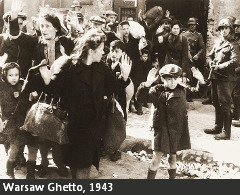 (Read Part 1)
(Read Part 1)
Although many Bible students are familiar with the general developments of Jewish history until the destruction of Jerusalem in AD 70, few have any familiarity with their history between that fateful date and the twenty-first century. It is not a pretty story. Although a small remnant of Jews always continued to live in the land of their forefathers, the vast majority sojourned in the diaspora (literally the “scattering”), a technical term for those lands outside of the land of Israel. They were guests in foreign countries—“aliens” and “exiles” would be a more appropriate term for their plight. Their hosts, moreover, were far from anything deemed “hospitable.”
No matter where they wandered in the medieval world, the Jewish people never had citizenship open to them in any country. Not only were they often hated as a group, they were also often caught between warring factions and suffered the consequences. When the European Crusaders launched their expeditions in the eleventh through the thirteenth centuries to free the Holy Land from the Muslims, they slaughtered dozens of Jewish communities along the way. When the Black Death spread through Europe in 1348-1350, many blamed the Jews for poisoning wells and burned thousands, especially in Germany. Even the Pope, not always a friend to the Jews, opposed such baseless accusations, but the mob could not be dissuaded from their blind hatred.

 (Read
(Read 
Discussion